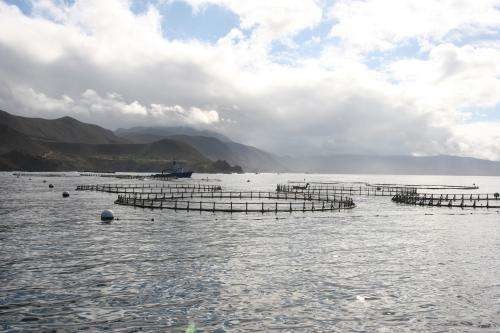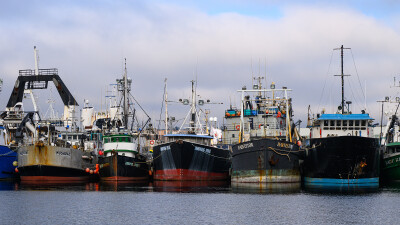Alaska Governor Mike Dunleavy has proposed a bill outlining a roadmap for the state to host closed-system finfish farms for the first time.
Currently, Alaska law prohibits all such farming except for private nonprofit salmon hatcheries, many of which are run by Indigenous communities with the goal of rebuilding vulnerable wild salmon stocks.
In a release about the proposed legislation, Dunleavy said finfish farming could help with the issue of food security, calling the proposal “a continuation of my administration’s efforts to grow Alaska’s food security by creating a new fish farming industry.”
“Alaska can join other regions of the world by raising fish that can be sold and consumed here in Alaska and be available for export," he said. "This legislation will yield new jobs, economic growth, and a new food source for all Alaskans.”
The proposed bill, HB 111, would authorize the cultivation of certain finfish – excluding pink, chum, sockeye, coho, Chinook, or Atlantic salmon – in what the governor’s office called “inland, closed-system bodies of water.”
Beyond its exclusion of the cultivation of salmon, it would require that all farmed finfish are sterilized and unable to reproduce and that all finfish farms be enclosed within natural or artificial escape-proof barriers. It would, however, allow lakes with natural or artificial escape-proof barriers on private property to be stocked with finfish for personal consumption without a permit.
Alaska originally banned finfish farming in 1990 to "protect wild stocks from the danger of disease and pollution as well as the possibility of escaped farmed fish diplacing or breeding with wild fish," according to the Alaska Department of Fish and Game.
Read more on Seafood Source. This article was published with permission.







